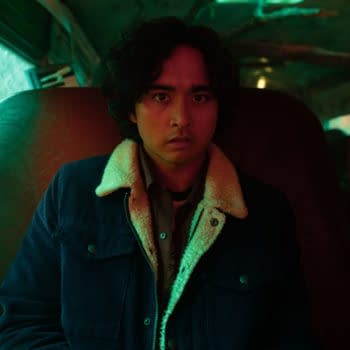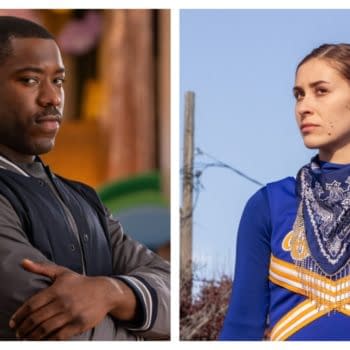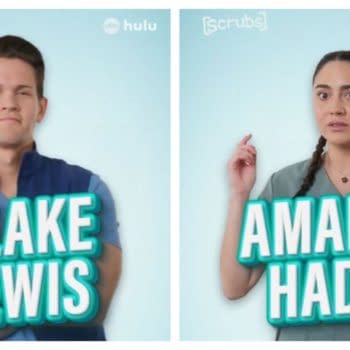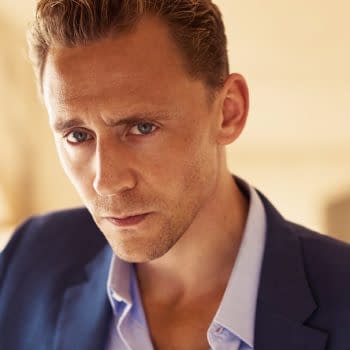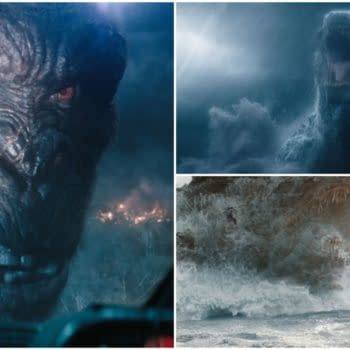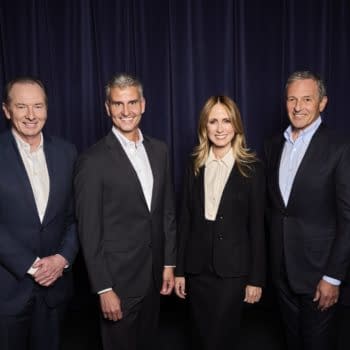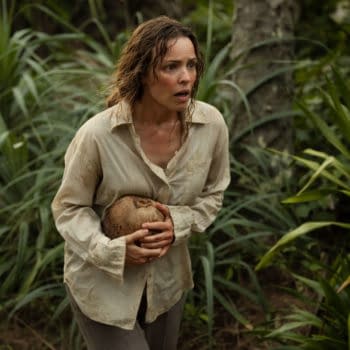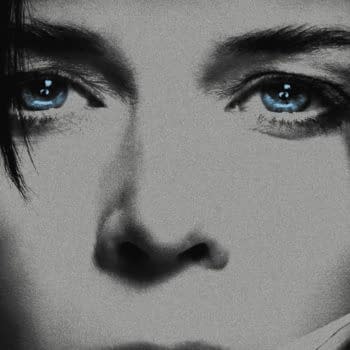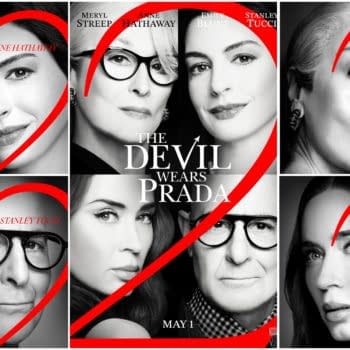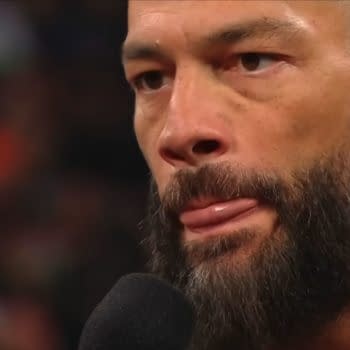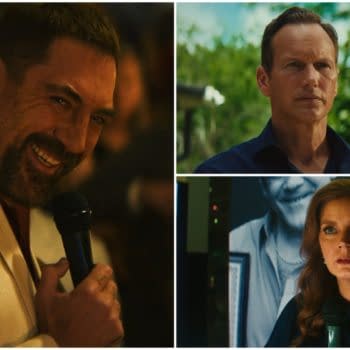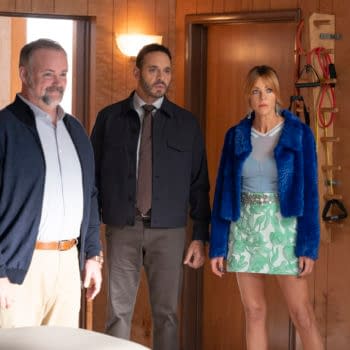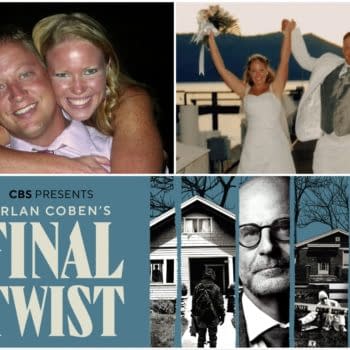Posted in: Interview, Movies, TV | Tagged: Daphné Baiwir, Darkstar Pictures, interview, stephen king
King on Screen Dir. Daphné Baiwir on Stephen King's Screen Legacy
Director Daphné Baiwir spoke with Bleeding Cool about her Stephen King documentary, King on Screen, as well as the author's legacy & more.
There's little debate as to how much Stephen King continues to influence pop culture as the most adapted-to-screen author in the modern era. It was something that actress, writer, and director Daphné Baiwir (King on Screen) realized at a young age when she read The Shining, his third book originally published in 1977. Her love for his storytelling was further affirmed when she got to see the Stanley Kubrick 1980 adaptation of the same name that starred Jack Nicholson and Shelley Duvall. Baiwir took her passion for the screen into documentary filmmaking that, includes chronicling the life of the late silver screen legend in The Rebellious Olivia de Havilland. Assembling a wide range of directors and talent that includes Mike Flanagan, Frank Darabont, Mick Garris, Amy Irving, Jeffrey DeMunn, Vincenzo Natali, Tom Holland, Tim Curry, Mark L. Lester, Dee Wallace, Greg Nicotero, the late James Caan, and more, she spoke to Bleeding Cool about why King's legacy as an author is so filmable from the artists who brought his vision to life on screen, working with Caan on his final project, the names she couldn't get, her favorite King novel, and his most underrated adaptation.
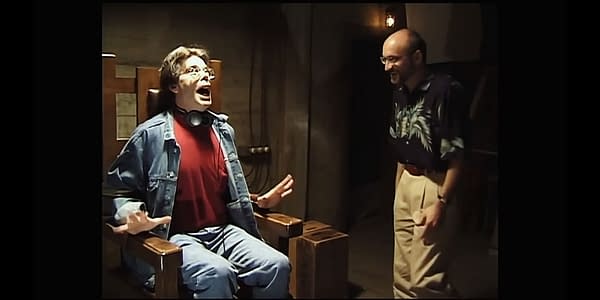
King on Screen: How Stephen King Influenced Generations of Artists
Bleeding Cool: How do you go from wanting to profile Olivia de Havilland to Stephen King for 'King on Screen?'
Baiwir: I've always been a huge fan of cinema, and I love all the American movies. My path is a true direction in what I do. For example, the first documentary I made was in prison, so completely different, then I made a documentary about American cinema and the Deauville [American] Film Festival, which is a festival near my place in Normandy. After I covered Olivia de Havilland because I'm a huge fan, and she was a terrific woman. She did great things in the industry. I've always loved Stephen King's work, so it was natural to go to make this documentary and have the directors' point of view in this because it could be interesting to talk to directors and learn a little bit more about their adaptation process and how they work from the books to the screen.
What of King's work grabbed your attention?
I discovered Stephen King for the first time when I read 'The Shining.' It's the first book that I read. It's the first of his works that I discovered, and I was ten years old, so quite young. After reading the book, I loved it. My father showed me 'The Shining' movie, and I was petrified for sure. I wanted after that to read all his books and see all the movies. From that point, I started to read everything, watch everything.
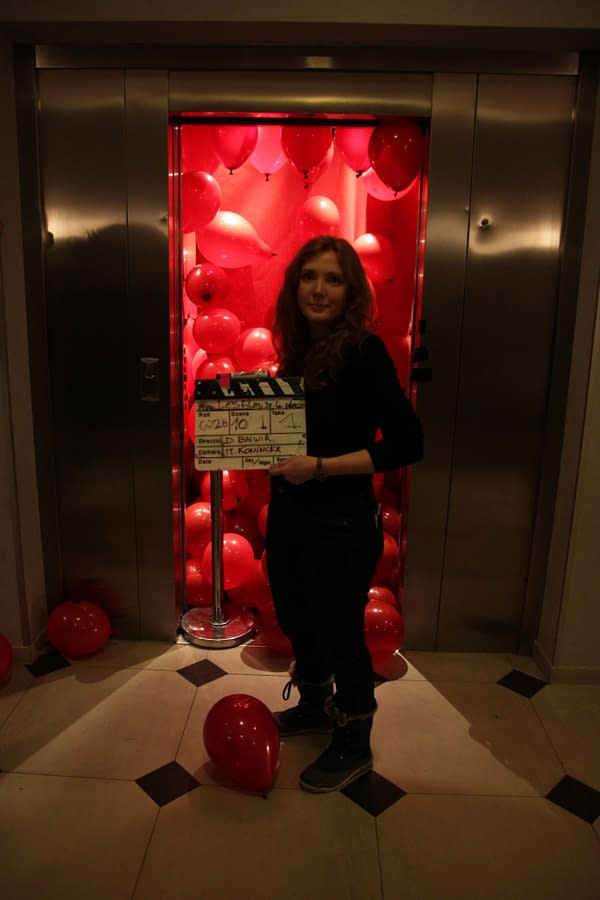
It seemed that you had access to such a wide range of talent. How did you get the subjects, and how long did it take?
We started the project in 2019 with the producer Sebastien Cruz. We were talking, and I told him, "Okay, but if we are doing a documentary about directors, we have to know if they are willing to talk to us and if they are okay to participate in this project." They said, "Okay, let's send a few emails and see how many people are okay to do this." We sent ten emails, and the next morning we had ten. We thought, "That's great! Let's do this, and the thing that is interesting that I'm so thankful for is the fact that sometimes we couldn't reach a director because we couldn't find a way to reach him. It's another director [who ends up] helping us [gain access]. It's thanks to Frank Darabont that I was able to talk to Greg Nicotero, and it's thanks to Vincenzo Natali that I was able to talk to Josh Boone. It was something unique and a great experience.
I see that you have got the late James Caan on there. What was he like in the time that you spent with him?
I couldn't see him, because it was his last project. A few months before he passed away, he agreed to participate in the film by making a voiceover in the small fictional introduction. He sent it to us, and we were so thrilled because we were able to have him a little bit in the film. That's why we dedicated the documentary to him.
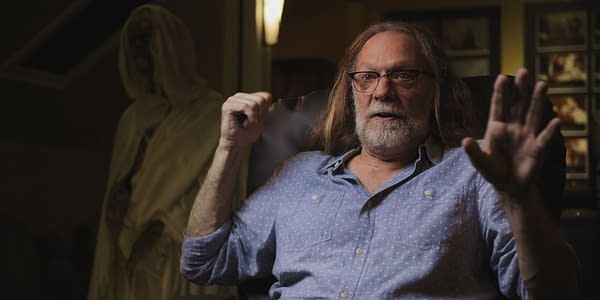
Was there anyone you tried to get that you couldn't?
I wanted to have ['Pet Sematary' (2019) director] Mary Lambert, but I couldn't have her in the documentary; as well as Rob Reiner and John Carpenter.
What was the biggest surprise that you've learned from doing this project?
It's mostly about the directors and the way they work in terms of learning because it was so interesting talking to each about King. It's like having a private master class from them. It's always surprising when you meet someone new, he's talking about his work, and it's always a great experience. It's more of a human experience that I loved and enjoyed.
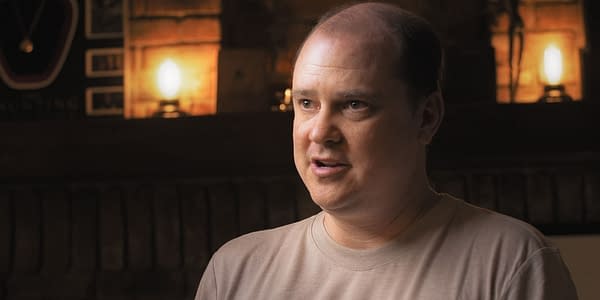
I enjoyed the opening sequence of the documentary and all the nods to King's past work that's been adapted on the screen. Why do you think he has been able to sustain so well for so long since they're still remaking some of his work on TV and film?
His books are completely universal, and it speaks to every generation. When you see the directors who are adapted to him, you have directors that are now in their 70s as well as younger directors such as Mike Flanagan, Josh Boone, and Vincenzo Natali. It is talking to every generation, and his books, even if sometimes they are set in the '70s or '90s, are still accurate and actual. That's because, deep down, the essence of his book will remain in a hundred years.
Do you have a favorite King work?
I love 'Duma Key' (2008). It's not the book everyone is talking about because it's not "The Shining" or "Pet Semetary," but it's one that I loved. The paintings and social context behind them make it a great one.
What of his adapted works on screen is your favorite?
'The Green Mile' (1999) is my favorite film. That is a masterpiece, and it's one of the best.
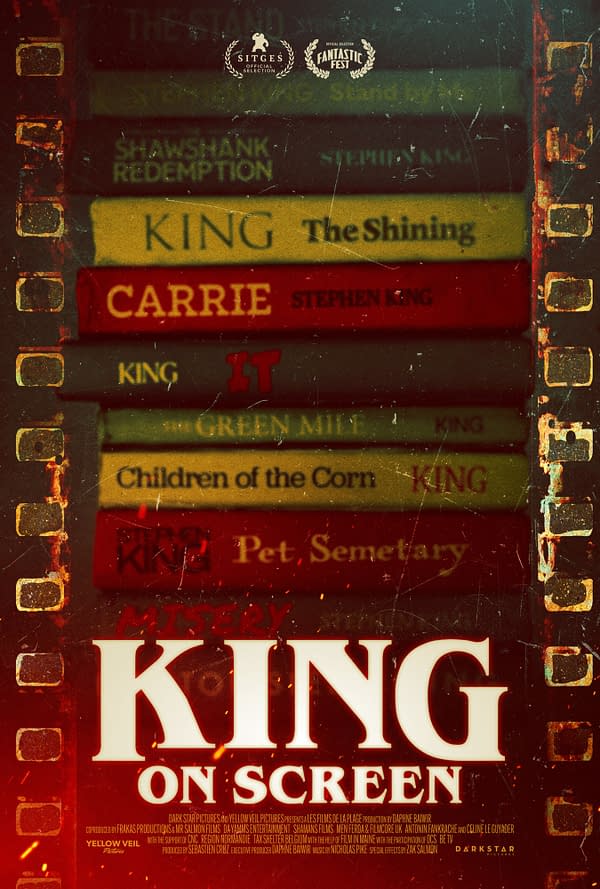
There are various themes and eclectic work he's done because most focus on horror. There's his experimental time as Richard Bachman. How did you sort that content with the directors?
Some of the things I wanted to talk through for them are because some recurring themes are present in Stephen King's work, like the family. It's something that we find a lot of the time in dysfunctional families. Another subject I wanted to talk about is the female characters. It's interesting because he writes great female characters, and I knew some of the other themes, like politics. We had to talk about that because it's things that we find in every Stephen King book.
There were films like that, so I asked the directors, and we talk a lot about their films as well and how they work. That's the direction I took at the beginning. After we spent the time in the editing room to string going to the beginning of the documentary, which starts with 'Carrie' (1976), which was his first adaptation, and then going to the last ones, like 'Doctor Sleep' (2019) at the end. This is a chronological story, but at the same time, we wanted to talk about a lot of films and find a great way to switch between the two films, naturally.
What do you think is the most underrated adaptation of King?
That's a good question. I like '1408' (2007). I know it's not often discussed, but it's a film that is well done. It's scary, and there's a good ambiance, and that's a film that I appreciate. John Cusack is also quite amazing.
Darkstar Pictures King on Screen is in select theaters on August 11 and on-demand and Blu-ray on September 8.






